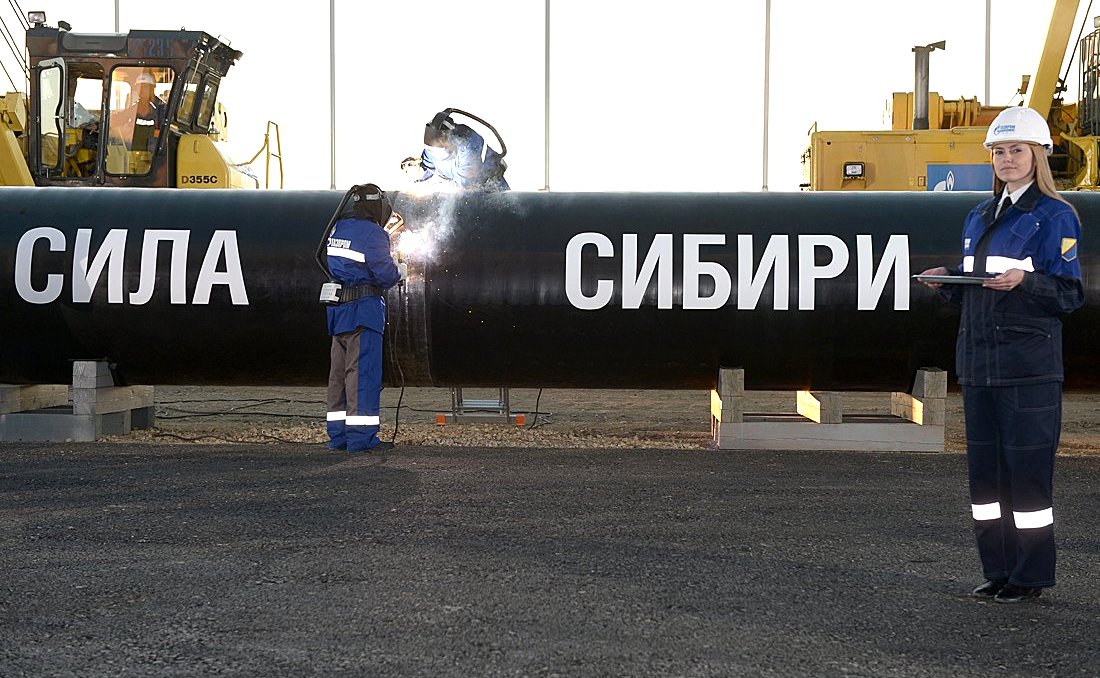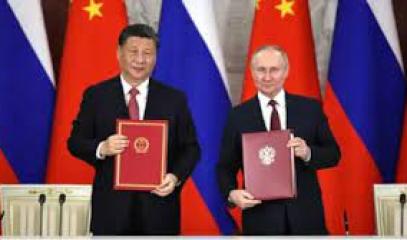Power of Siberia 2: Moscow announces gas pipeline deal with Beijing (which is silent)
Gazprom's CEO announced a “legally binding agreement" with the China National Petroleum Corporation (CNPC). The pipeline, which Russia has been pushing for years, could supply up to 50 billion cubic metres of gas per year to China over 30 years. For Russia, it would be vital to offset lost markets in Europe. Chinese media have been silent on the details that have blocked the agreement so far.
Beijing (AsiaNews) – The China-Russia summit, which also involved other Asian countries like Mongolia, is starting to yield its first results.
Russian energy giant Gazprom has reportedly signed a "legally binding agreement" with the China National Petroleum Corporation (CNPC) to build the Power of Siberia 2 gas pipeline to China, complemented by a section of the Soyuz Vostok transit pipeline through Mongolia.
To this end, Bloomberg cites Alexey Miller, Chairman of the Board of Directors of the energy giant, but there is no confirmation from Chinese sources.
At present, Russia supplies gas to China via the Power of Siberia pipeline, with a projected transport capacity of 38 billion cubic metres per year. Starting in 2027, the so-called Far Eastern route is expected to increase Russian annual flows to China by another 10 billion cubic metres.
The deal signed by Xi Jinping and Vladimir Putin at the 25th Shanghai Cooperation Organization (SCO) summit in Tianjin is part of the vision outlined by the two leaders to deepen bilateral relations and boost trade ties.
On paper at least, the new infrastructure could reshape global energy flows as both leaders seek to define an alternative to the economic (tariff-driven) and political hegemony of US President Donald Trump.
The meeting between Xi and Putin is further proof of the renewed bond between China and Russia. As a sign of this, the two leaders, with heads of state and government of the “anti-Western” front, will take part in tomorrow’s imposing celebrations in Beijing to mark the end of the Second World War.
This relationship has withstood "the test of changing international circumstances," Xi said, and has become "a good example of friendship between neighbors, comprehensive strategic coordination, and mutually beneficial cooperation.”
For his part, Putin thanked his Chinese “friend” for the warm welcome", stating that “close communication” brought relations between Russia and China to an “unprecedentedly high level”.
One sign of the consolidation of this partnership is the new gas pipeline that will connect the two countries.
In September 2022, Mongolia and Russia announced the start of construction of Power of Siberia 2 pipeline by 2024 to carry gas from the Russian Yamal field, which previously supplied Europe, to China via Mongolia.
Once fully operational, the pipeline is expected to have a capacity of 50 billion cubic metres per year, in addition to the 38 billion cubic metres that its sister pipeline, which entered service in 2019, is supposed to deliver.
Mongolian President Ukhnaagiin Khürelsükh attended the Xi-Putin summit for talks that became trilateral, focused specifically on the steps to unlock the Power of Siberia 2.
The goal is to double the current transport capacity for this strategically important infrastructure; however, uncertainty still surrounds the project. Miller (and Gazprom) believe the pipeline could deliver up to 50 billion cubic metres of gas per year to China over a 30-year period.
Russia also pledged to increase annual deliveries through the existing Power of Siberia pipeline from 38 to 44 billion cubic metres.
However, while Moscow has framed the announcement as a breakthrough, Beijing has not publicly confirmed the project. China's state-run Xinhua news agency reported the signing of more than 20 bilateral cooperation agreements, but no mention was made of the new pipeline.
Negotiations on Power of Siberia 2 have been stalled for years, with disagreements over price, financing, and long-term demand. It is unclear whether China will commit funds to build the pipeline or require Russia to cover the costs. Pricing, delivery flexibility, and a construction timeline have also not been disclosed.
Russia sees the project as a way to make up for lost exports to Europe after 2022, when European Union (EU) states began reducing imports following the invasion of Ukraine.
The details have not yet been agreed upon, and will prove crucial for Moscow as its energy revenues decline and Gazprom itself struggles to stay afloat.
For Victor Gao, president of the China Energy Security Institute, the Russian announcement was "a bit premature”, adding that, “This may be more [a signal] of their intent, rather than an agreement already reached”.
29/05/2025 18:13
22/03/2023 14:05








.png)










